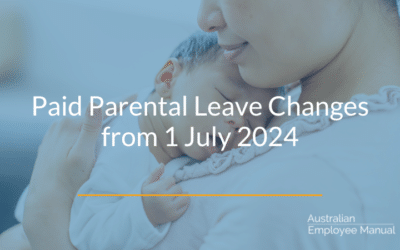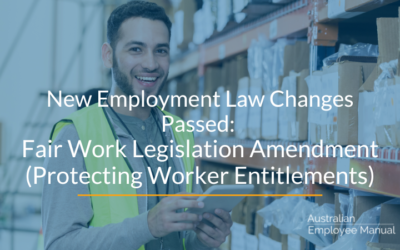Flexible Work Arrangements were another area amended by the Fair Work Legislation Amendment (Secure Jobs, Better Pay) Act 2022.
The Government considered that existing arrangements did not go far enough and provided no incentive for employers to genuinely consider requests for flexible working arrangements. There was also no recourse if an employer and an employee could not agree to alternate arrangements.
These changes aim to make flexible work arrangements more accessible to women and people with carer responsibilities.
What Has Changed?
Under the changes, section 65A of the Act now provides a detailed requirement for how employers respond to requests for flexible working arrangements.
Managers are now required to respond in writing to employees within 21 days of their request, and the response must:
- Grant the request, or
- If, after discussion with the employee, the manager and employee agree to alternate working arrangements that differ from the original request, note the agreed changes, or
- Refuse the request.
Employers may only refuse a request if:
- they have discussed the request with the employee and genuinely tried to reach an agreement with them about making changes to their working arrangements,
- the employer has had regard to the consequences of the refusal for the employee, and
- there are reasonable business grounds for refusing the request.
Genuine business grounds for refusing the request include:
- that the new working arrangements would be too costly for the employer,
- that there is no capacity to change the working arrangements of other employees to accommodate the new working arrangements requested,
- that it would be impractical to change the working arrangements of other employees, or recruit new employees, to accommodate the new working arrangements requested,
- that the new working arrangements requested would be likely to result in a significant loss in efficiency or productivity,
- that the new working arrangements requested would be likely to have a significant negative impact on customer service.
The employer’s specific circumstances, including the nature and size of the enterprise carried out, are relevant to whether the employer has reasonable business grounds for refusing a request.
For example, if the employer has only a small number of employees, there may be no capacity to change the working arrangements of other employees to accommodate the request.
If the employer refuses the request, they must provide a more detailed explanation in writing for their grounds for refusal.
This response needs to include:
- details of the reasons for the refusal,
- the particular business grounds for refusing the request,
- how those grounds apply to this request,
- any changes that the employer would be willing to make that would accommodate the employee’s circumstances to any extent, and
- outline that any unresolved dispute may be referred to the Fair Work Commission.
The Act now also provides a dispute resolution process for employees who have had their request refused or where the employer has not provided a written response to the request within 21 days.
The new provisions allow that if the parties can’t resolve the dispute through discussion at the workplace, they can seek conciliation before the Fair Work Commission.
Where conciliation is unsuccessful or if the matter is urgent, the Fair Work Commission has the power to deal with the matter as it considers appropriate or through mandatory arbitration.
When Do The Changes Come Into Effect?
These changes will take effect on 6th June 2023.
What Should Employers Do Now?
Employers should:
- Review their current Employee Policies relating to Flexible Working Arrangement processes to ensure they comply with the new legislative requirements.
- Review all flexible working arrangement letter templates to ensure they comply with the new rules.
- Work out how they will approach future flexible work request discussions and how they will ensure a response is provided within 21 days.
- Determine any limitations concerning their ability to offer flexible working arrangements and how they may provide evidence of these limitations during discussions, in response to the request and before the Fair Work Commission.
- Ensure all managers are trained in how to respond to requests for flexible working arrangements.
We will be amending the Flexible Work Request policy and forms in our Employee Manual suite of products in the next update to our products.




